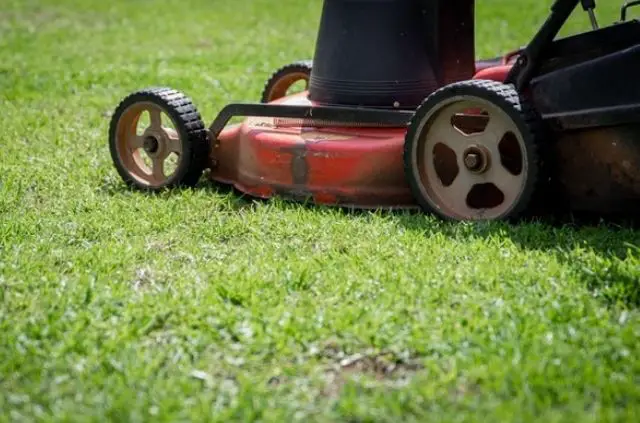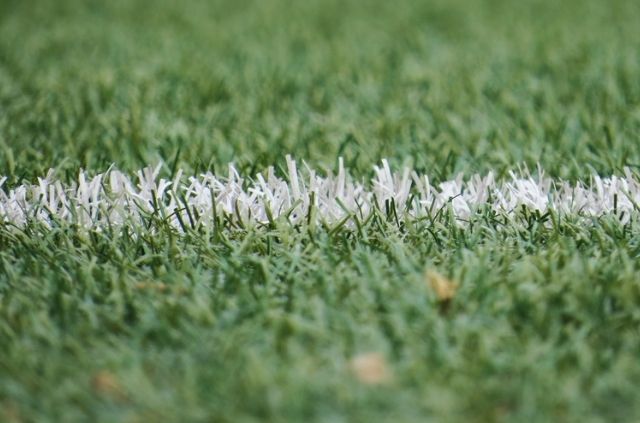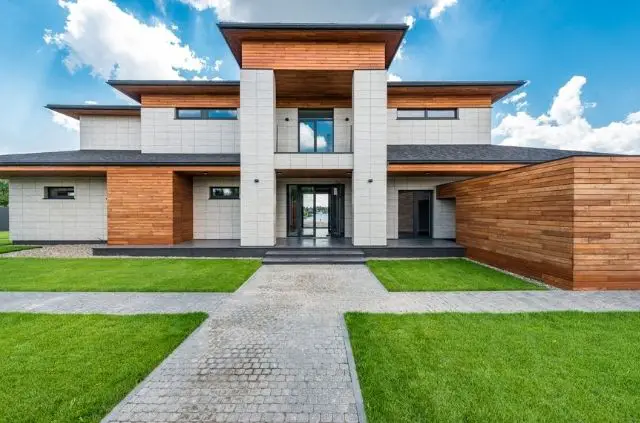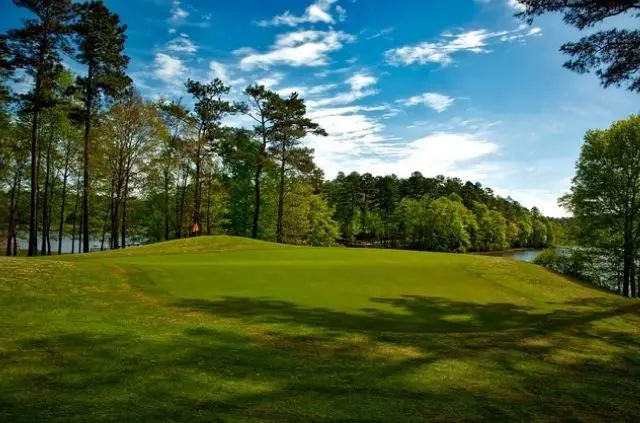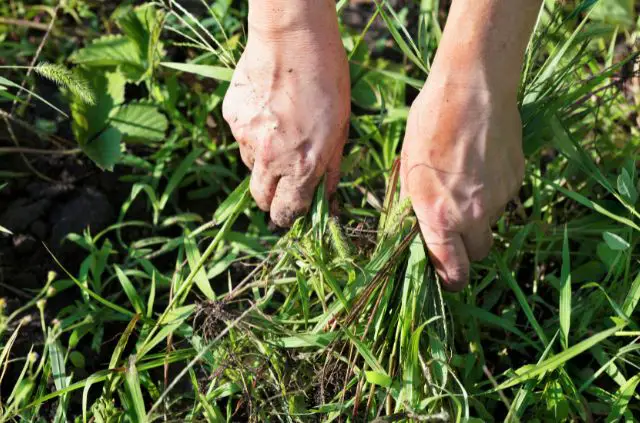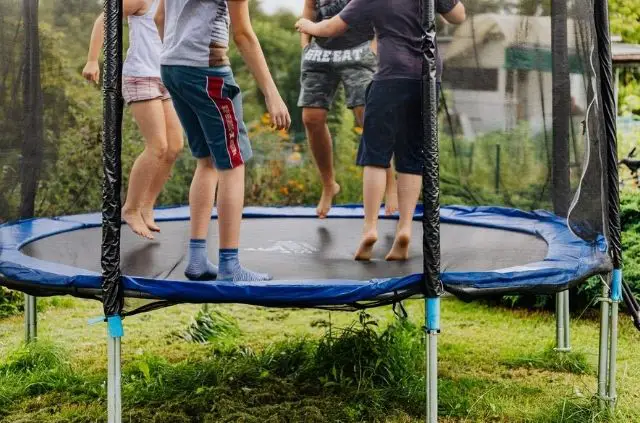Grass Seed Not Growing After 3 Weeks (Solved)
There’s nothing like having a thick and vibrant green lawn. I’m talking about the kind of grass that makes your neighbors jealous. But what if you have patches of dirt where seed won’t grow? If your grass seed is not growing after 3 weeks, it may be from one of the reasons listed below.
Grass Seed Germination
Depending on the species of grass, you generally want to keep seed wet for 2-4 weeks after planting. The germination period can range from 7-14 days. This is when the seed will bud out and attach to the soil.
Growing grass is a very delicate process. You want the ground to stay damp, but if it gets too wet there will be surface runoff which will prohibit the seed from growing. If the ground lacks moisture germination can still occur, but the seed will eventually dry out and die.
The key is to set your sprinklers for short periods of time, more frequently throughout the day. This will keep the grass seed damp and prevent surface runoff. You should only be running the sprinklers for 5 minutes at a time, 3-5 times a day.
Why Your Grass Seed is Not Growing After 3 Weeks
There are a handful of steps you can follow to figure out why your grass seed isn’t growing. One of the most common reasons is improper watering techniques. As I briefly mentioned above, growing grass can be frustrating process because you have to get the water level just right. Try out some of these methods below and see what works for you.
1. Poor Sprinkler Coverage
One of the first reasons why your grass seed is not growing could be from poor sprinkler coverage. A water output cup test can help you solve this problem. Begin by placing the test cups in a grid pattern throughout your yard. Make sure to put them down in areas with green and brown grass to get a consistent measurement.
Then you will need to run the sprinklers for 15-20 minutes. After this amount of time has passed you can examine the cups to figure out how much water landed in these areas. There could be places that are only getting a small amount of water. If you don’t fix the sprinkler coverage in these problem areas, the grass seed will not grow.
2. Too Many Debris
Any type of debris that get on the grass seed will prohibit new growth. It’s important to remove these debris as soon as possible, in order to expose the seed to sunlight and moisture. Clean up any leaves, pine needles, and lawn clippings from the surface. Some people forget these debris can actually kill grass and prevent new grass from growing.
If you don’t have a bag on your lawn mower, clippings will build up on the surface over time and become stagnant. When this happens the lawn clippings won’t be able to decompose and help your lawn. You can effectively remove all of these clippings with a thatching rake. This process does take time and it’s better for smaller lawns.
3. Weed Problems
One of the most frustrating things about growing grass is the amount of weeds that will pop up. That’s why it’s crucial to deal with weeds before the germination process. Once you begin watering the lawn, any seeds that were on the soil will germinate with them. So you will essentially be watering grass and unwanted weed seeds.
You will need to use selective herbicides when trying to grow grass in patchy areas. This type of chemical will only kill a certain kind of plant (in this case weeds) and leave your grass safe in the process. The only downside to using one of these products is the amount of time they take. You will need to wait a few weeks before attempting to grow new grass.
4. Not Mowing Low
Another reason why your grass seed might not be growing is that you’re not mowing low enough. You can mow the grass very short, so the new grass has the ability to find the sun. If you let the grass grow too long, it will keep the newer grass in the shaded areas underneath. Not as much sunlight and moisture will be able to reach these areas.
You should also mow the grass short right before planting new seed. Once the grass seed has been put down you should stop mowing for 2-3 weeks. This will allow enough time to start the germination process. But if you’re laying down seed in tall grass, it won’t be able to grow properly. That’s why it’s important to scalp the lawn first.
5. Old Grass Seed
If you’re using an old bag of seed chances are grass won’t grow. Most people might be surprised to learn that grass seed does have an expiration date. Grass seed will only last between 2-3 years, but the effectiveness will begin to dwindle with age. That’s why you don’t want to buy a large amount of seed at one time, unless you plan on using it right away.
It’s also a good idea to store grass seed in a cool, dry location. You don’t want any moisture to get on the seed and cause germination, or get too hot and dry out. You can test grass seed by placing them in a Styrofoam cup with one inch of water. Put the seed on a paper towel in the cup and place it in a sunny location to see if grass grows.
How to Tell if Grass Seed is Germinating
It will take anywhere from 7-14 days for grass seed to germinate, depending on what type of grass you are growing. Sunlight and consistent moisture will help the seed activation process.
If you have a stretch of cloudy days it might take a little longer for the seeds to germinate. You will begin to notice small blades of grass after this amount of time has passed. Don’t worry if the grass is patchy in the beginning, because it will even out over time.
This is most common with older grass, as some seeds will begin to germinate much faster than others. You also want to avoid walking on the grass seed during this time, as this can damage and even kill the seeds.
Any seedlings germinating below the soil is very fragile and any kind of pressure from foot traffic must be avoided. If after 3 weeks you don’t see any new grass, it’s time to begin troubleshooting. Take a look back at the methods listed above to figure out what went wrong.
Final Thoughts
Hopefully this article has helped you troubleshoot why your grass seed was not growing after 3 weeks. This time frame is important because the seeds should already be germinating and take to the soil.
The most important thing to remember is providing the lawn with enough water. You need to keep the grass seeds moist, but avoid over watering the surface as this will only cause runoff.
Further Reading
Search Terms
- Grass seed not growing after 3 weeks
- How to fix grass seed not growing after 3 weeks

